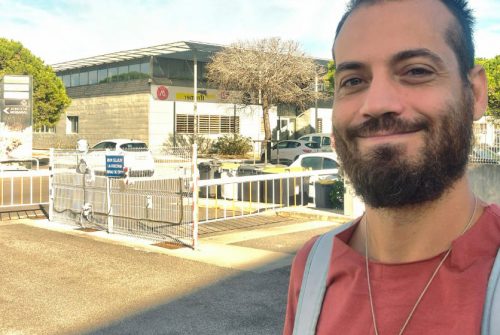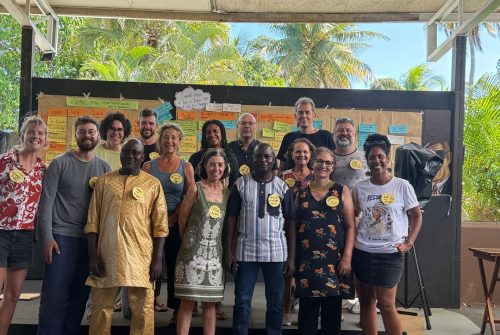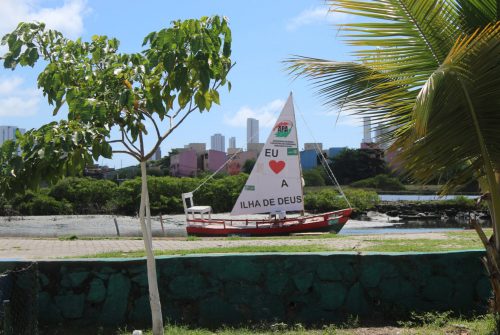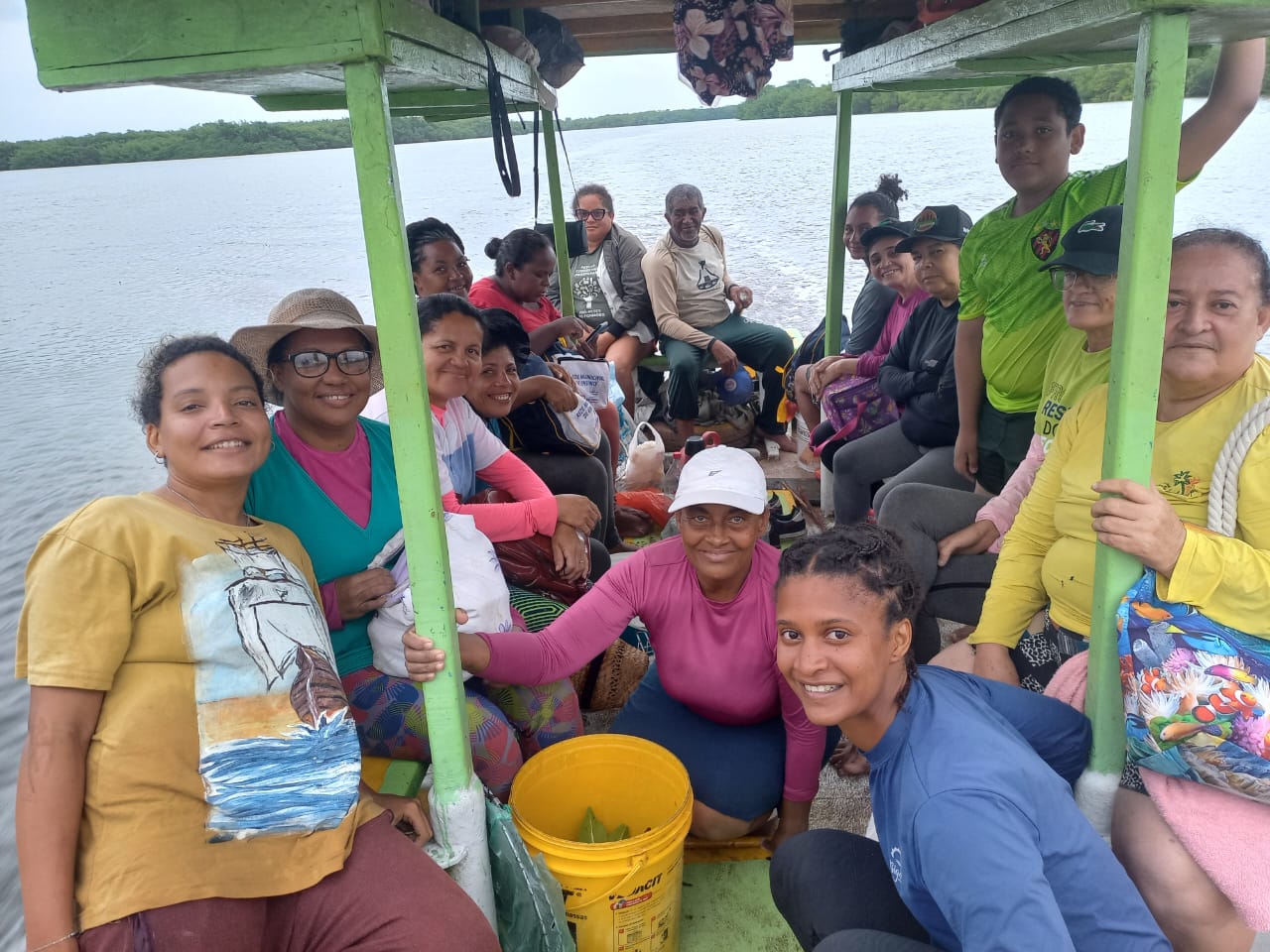
This text reports on the activities carried out in two fishing territories in Pernambuco during June and July 2024, the fruit of a solid partnership between LMI Tapioca, artisanal fishers, the Colony Z07 of Rio Formoso and the NGO Caranguejo Uçá.
St. Peter’s Day in Rio Formoso Brings Together The Fishing Community and Partners For A Celebration and Discussion on the Importance of Fishers
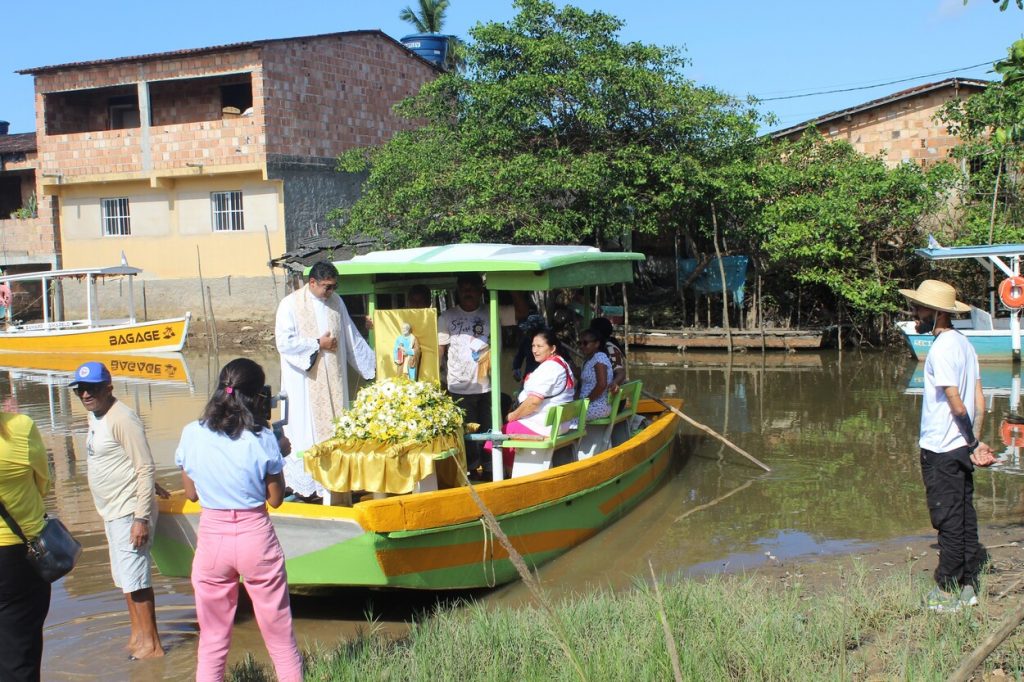
The traditional St. Peter’s Day, the Saint patron of fishers, was celebrated in Rio Formoso on June 29, gathering the local community and partners for an event filled with culture, and dialogue. Researchers from the LMI Tapioca, members from the Caranguejo Uçá NGO, and fishers from Ilha de Deus joined the Rio Formoso fishing community to participate in a series of activities and to celebrate the fishing profession, while also reflecting collectively on the challenges faced in artisanal fishing.
The event began with a boat procession through the estuary of Rio Formoso, with songs in honor of St. Peter and reflections on the importance of the fisher’s role. After lunch, served at Colônia Z07 with typical regional dishes, participants gathered for a round table organized by LMI Tapioca, which focused on the environmental and social impacts affecting artisanal fishing. The event also included a presentation of preliminary results from the participatory coastal planning research developed in the fishing territories of Rio Formoso and Ilha de Deus. One of the outreach project’s activities is to address local needs. This time, two demands were met: the translation of the article on global changes perceptions of Rio Formoso fishers into Portuguese, and an artistic intervention that refreshed the fisher’s association facade.
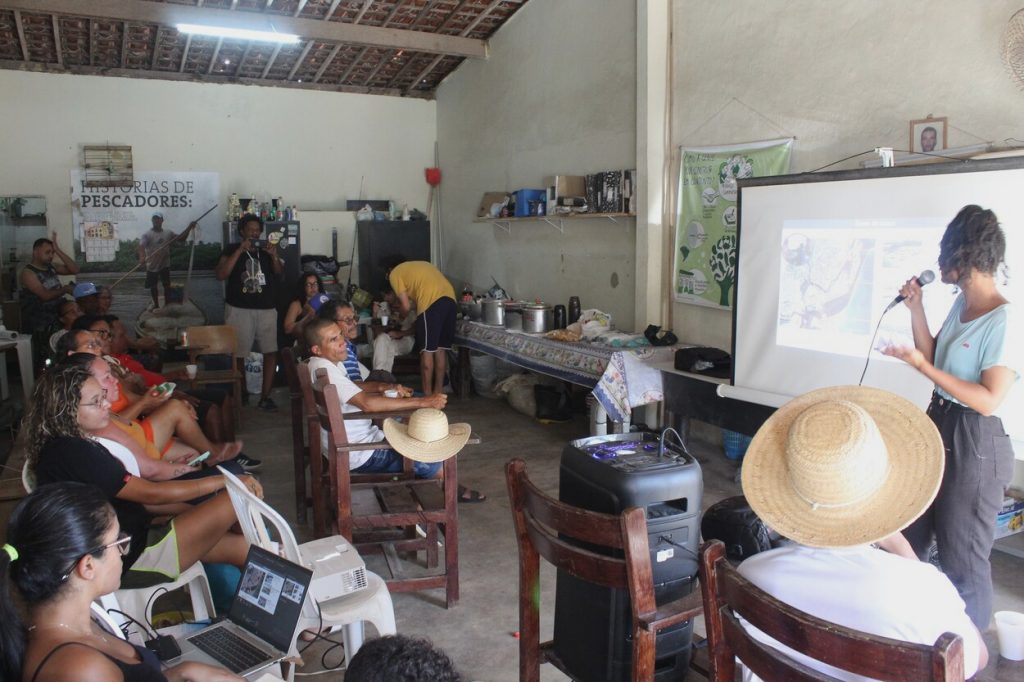
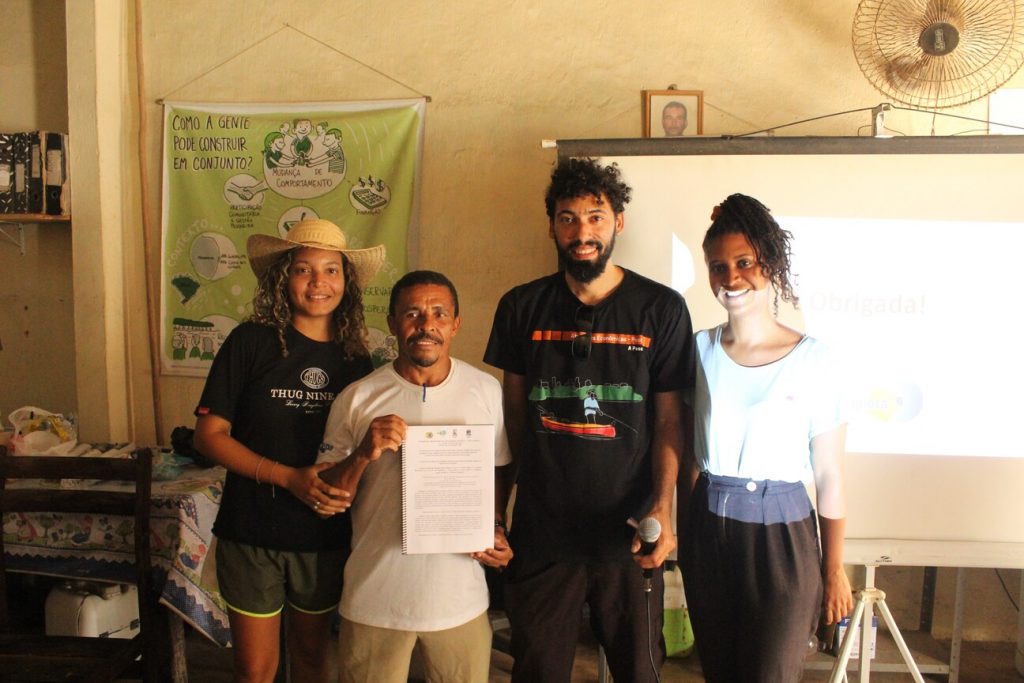
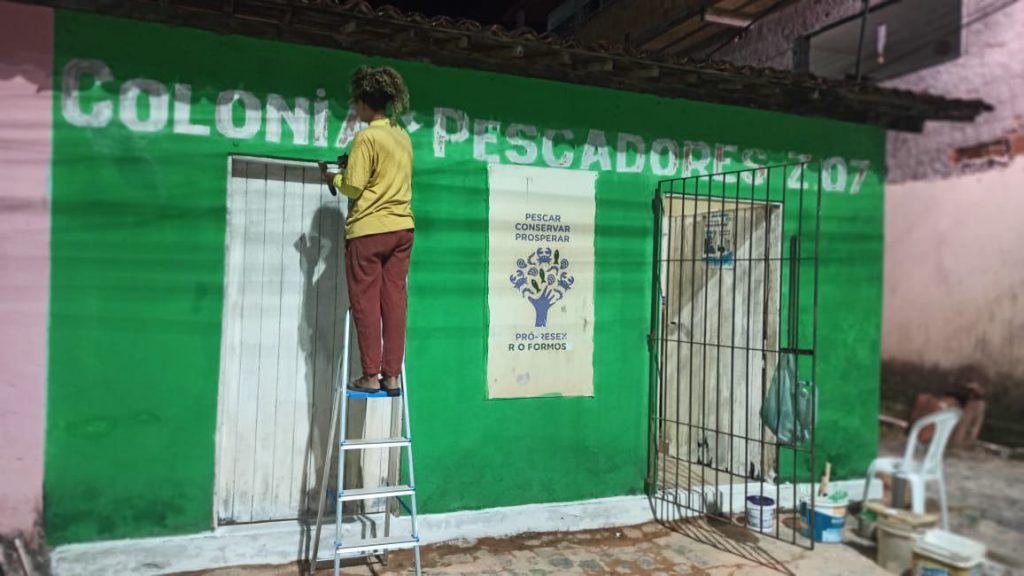
The debate highlighted key issues such as pollution, mangrove preservation, and the struggle for recognition and rights of fishing communities. Women were recognized as central figures in the preservation of sustainable fishing and in managing fishing colonies and associations. The event also served to exchange experiences among fishers from different regions, seeking joint solutions to the problems faced. During the discussion, fishers shared moving stories, including narratives of families migrating from Rio Formoso to Ilha de Deus.
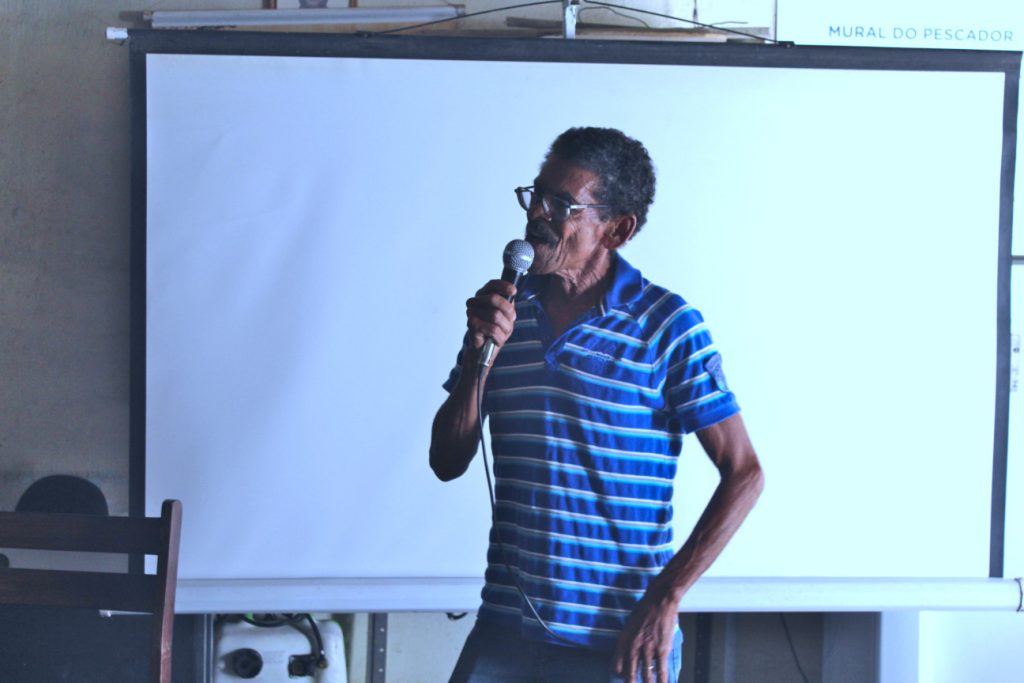
“I’m very emotional, after 35 years I’m back in Rio Formoso,” said Mosquito, a fisherman from Ilha de Deus.
The roundtable gathered LMI Tapioca outreach team workers, fishers, researchers, and NGO members to discuss Participatory Fisheries Management. The celebration was organized by the boatmen and fishers of Rio Formoso, with support from the Rio Formoso municipality and the LMI Tapioca extension group.
LMI Tapioca Participates in the “Climate Crisis and Challenges within Fishing Territories” Meeting
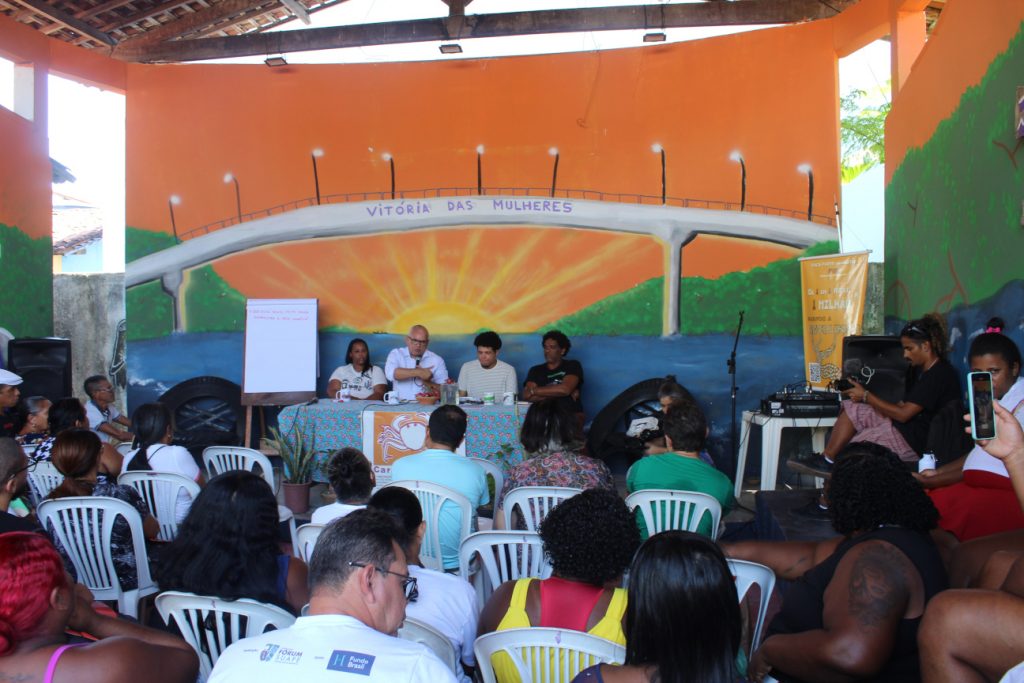
On July 27, 2024, the LMI Tapioca outreach team was invited to the “Climate Crisis and Challenges within Fishing Territories” meeting, held at the headquarters of the NGO Caranguejo Uçá. The event aimed to discuss the impacts of climate change on fishing communities and their adaptation strategies. It gathered representatives from traditional communities, fishers, researchers, parliamentarians, and community leaders, all engaged in discussing solutions to the challenges faced by these territories. The central discussion focused on the risks that rising sea levels and extreme climate events pose to biodiversity preservation, the way of life of coastal populations, and the local economy. Despite the importance of coastal fishing communities to the region’s history and culture, public policies focused on their adaptation to climate change remain scarce.
During the event, LMI Tapioca presented preliminary results from their research involving fishers from Rio Formoso and Ilha de Deus. Additionally, the Secretary of Fisheries, Cristiano Ramalho, announced future measures, such as the creation of a youth scholarship for fishing territories and a partnership with Fiocruz to improve the health of fishing communities. The debates also addressed issues like the impacts of the Suape Port and the Transnordestina railway, the challenges faced by fishers who are unable to work due to physical barriers in mangrove areas and Bill 256, which aims to regulate fishing territories. Fishers noted that the presence of researchers in the territories could help bring greater recognition to their struggles.
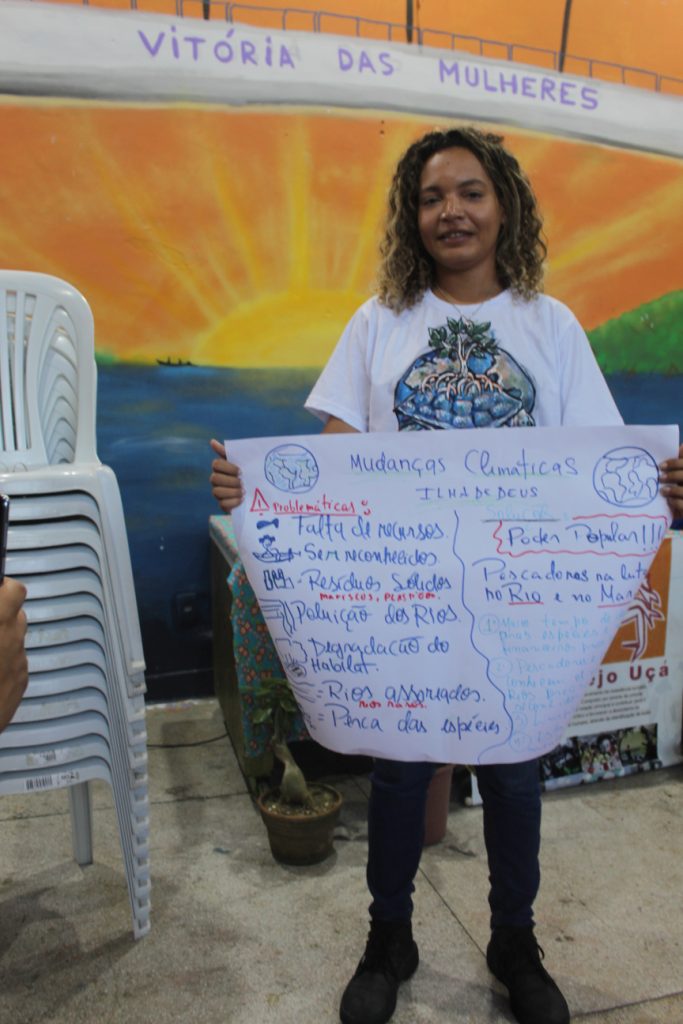
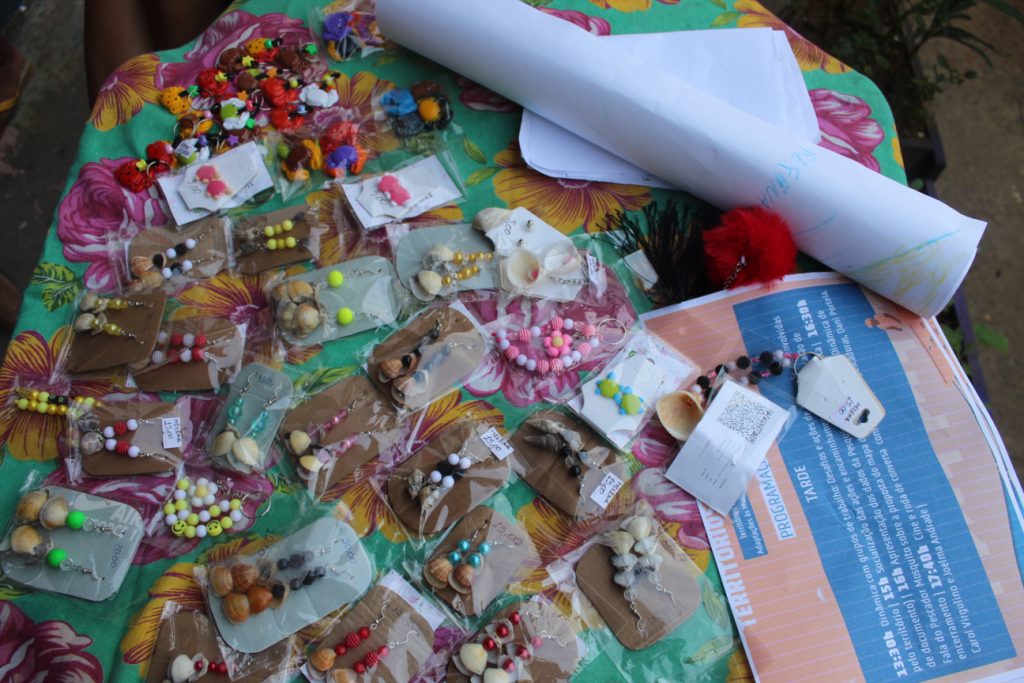
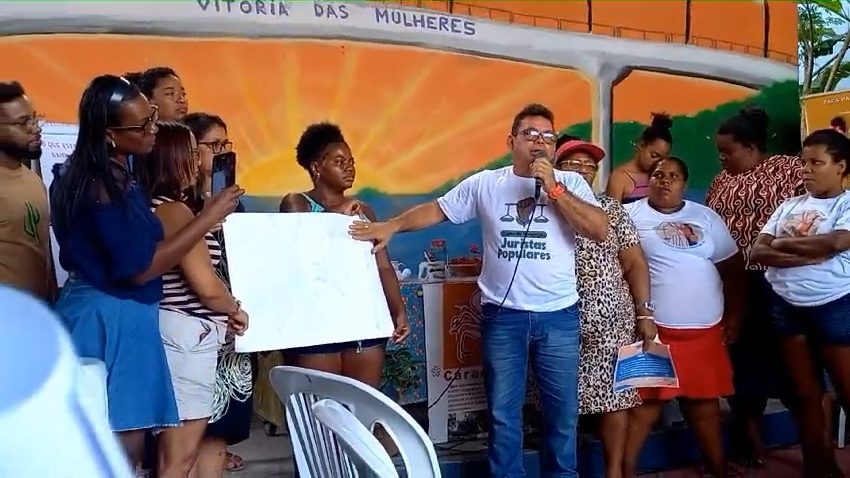
A creative methodology applied during the event divided participants into groups to discuss problems and solutions. From these discussions, a proposal emerged: the creation of a digital platform to map fishing territories and their challenges, providing an accessible channel for fishers to report daily issues. This initiative was inspired by similar projects, such as the map developed by the Rádio Amnésia collective to document indigenous community problems. Additionally, the groups performed theatrical pieces that allowed fishers to express their various demands, which will be formalized in a document to be submitted to the national fisheries office.
The event emphasized the urgency of actions to ensure the sustainability and rights of artisanal Fishers, who face not only the impacts of climate change but also a lack of adequate public policies.
Monitoring Artisanal Fisherwomen of Ilha de Deus and Rio Formoso in Partnership with Colônia Z07 and Caranguejo Uçá
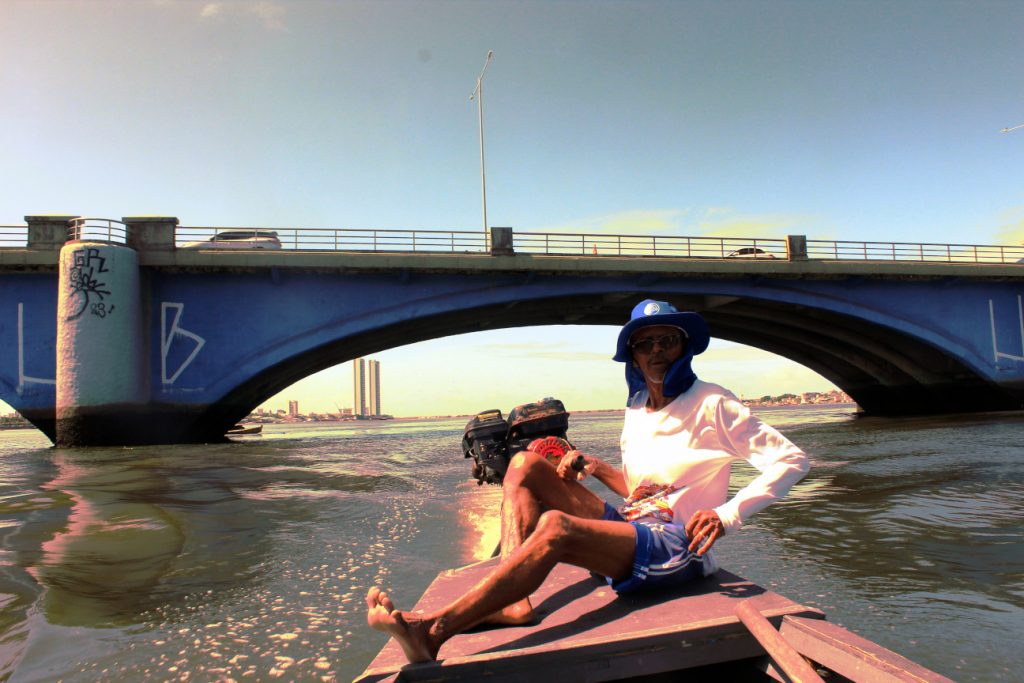
Accompanied by Mr. José Joaquim, popularly known as Mr. Mosquito, we navigated the waters of the Capibaribe River in the Recife Metropolitan Region to document artisanal fishing activities. During the journey, in addition to recording the daily life of the fishers, we had the opportunity to hear stories about the challenges of artisanal fishing. Many fishers mentioned the difficult access to fisher’s legal document, essential for accessing workers’ rights, and highlighted health problems caused by tough working conditions. Pollution in the river was another recurring complaint. Edivaldo, a fisherman from Pina, reported that he continued working despite having a dislocated leg, awaiting surgery. However, without a fisher’s license, he was unable to receive sickness benefits, further exposing the vulnerability of artisanal fishing workers.
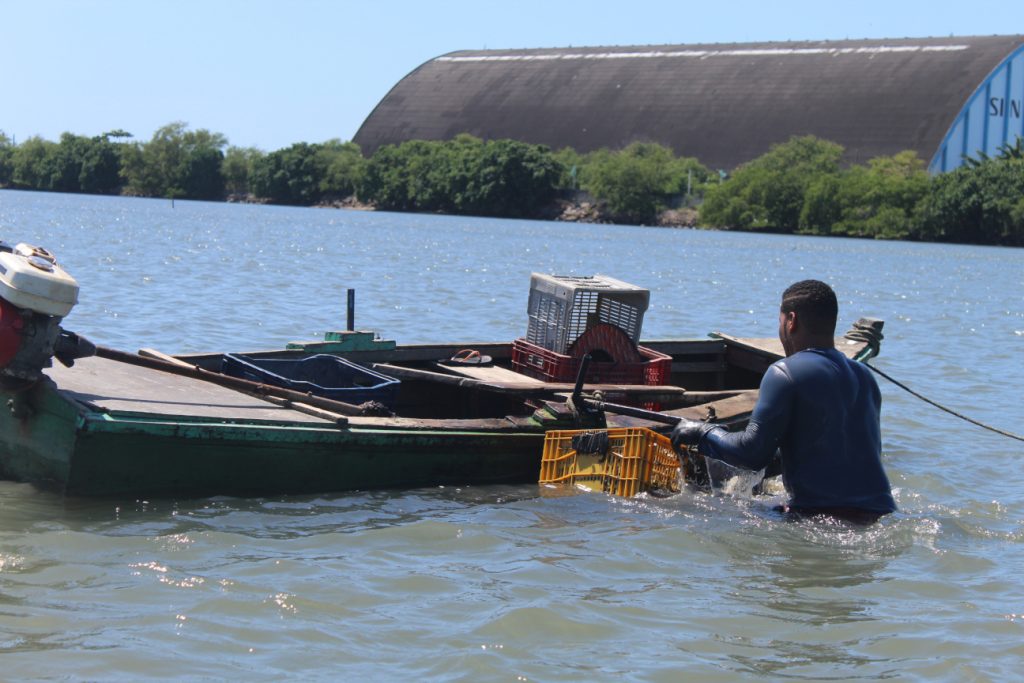
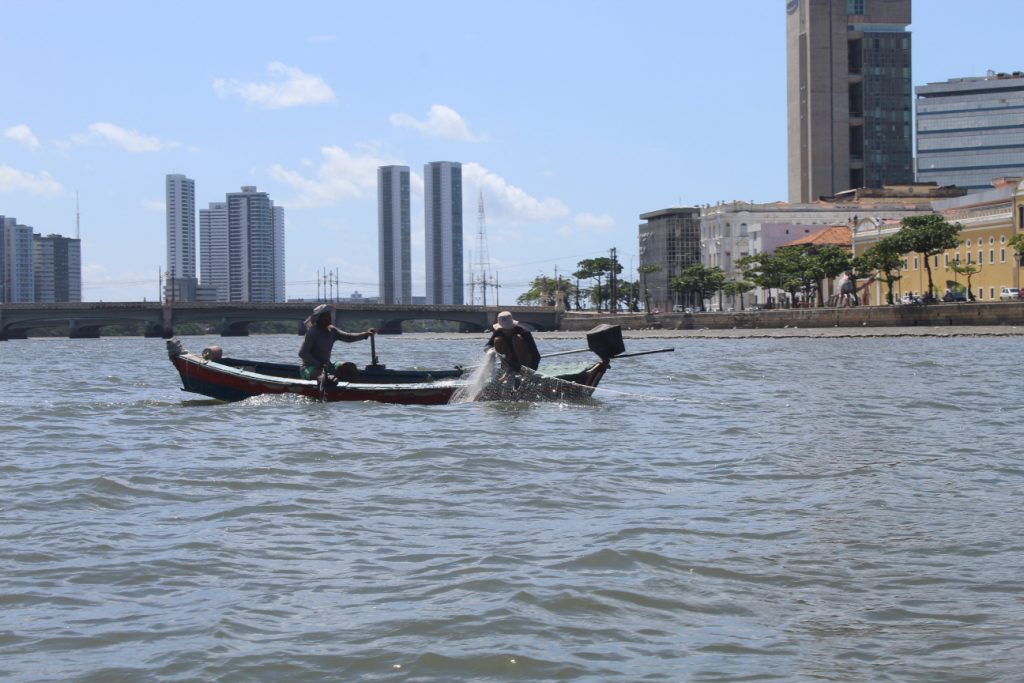
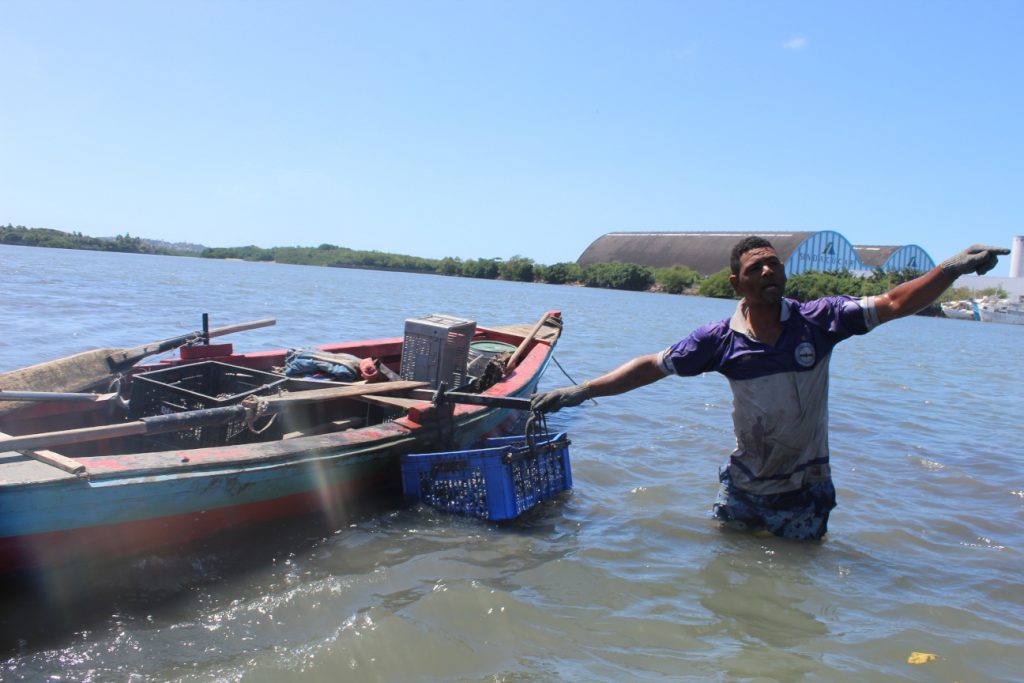
Edivaldo, a fisherman from Pina, reported that he continued working despite having a dislocated leg, awaiting surgery. However, without a fisher’s license, he was unable to receive sickness benefits, further exposing the vulnerability of artisanal fishing workers.
On August 20, the LMI Tapioca group visited Rio Formoso to accompany artisanal fisherwomen in a research and documentation activity. During this unique experience, the group had the opportunity to engage with the president of Colônia Z07, Cícera, the former president, Mr. Chico, and other fishermen and fisherwomen from the region. Through sharing personal life experiences, challenges, and fishing memories, each story provided an insight into the realities of artisanal fishing.
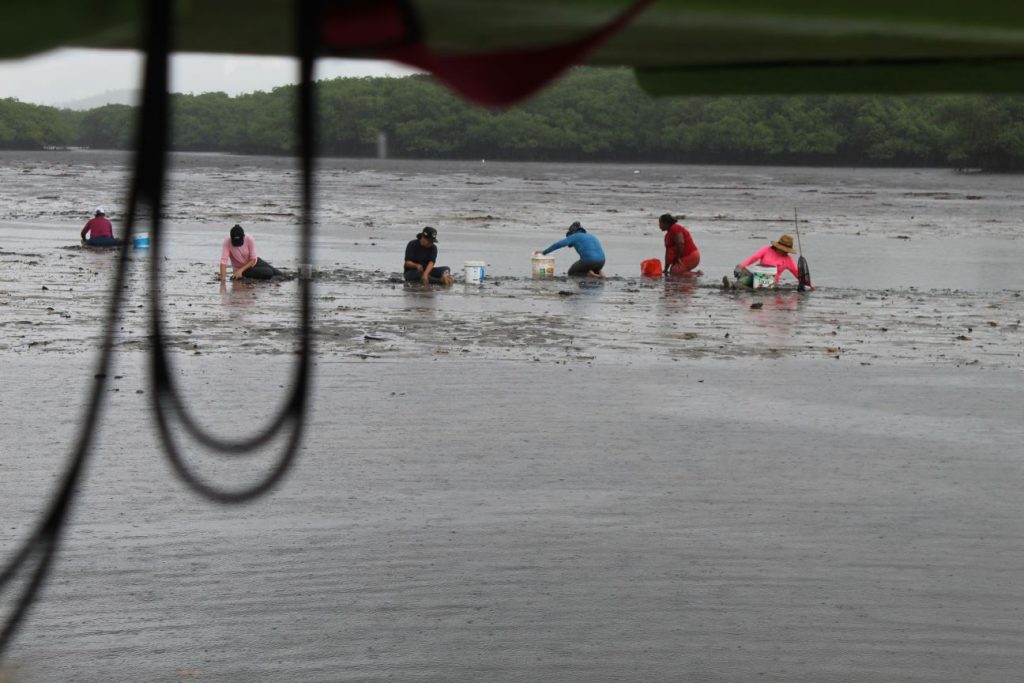
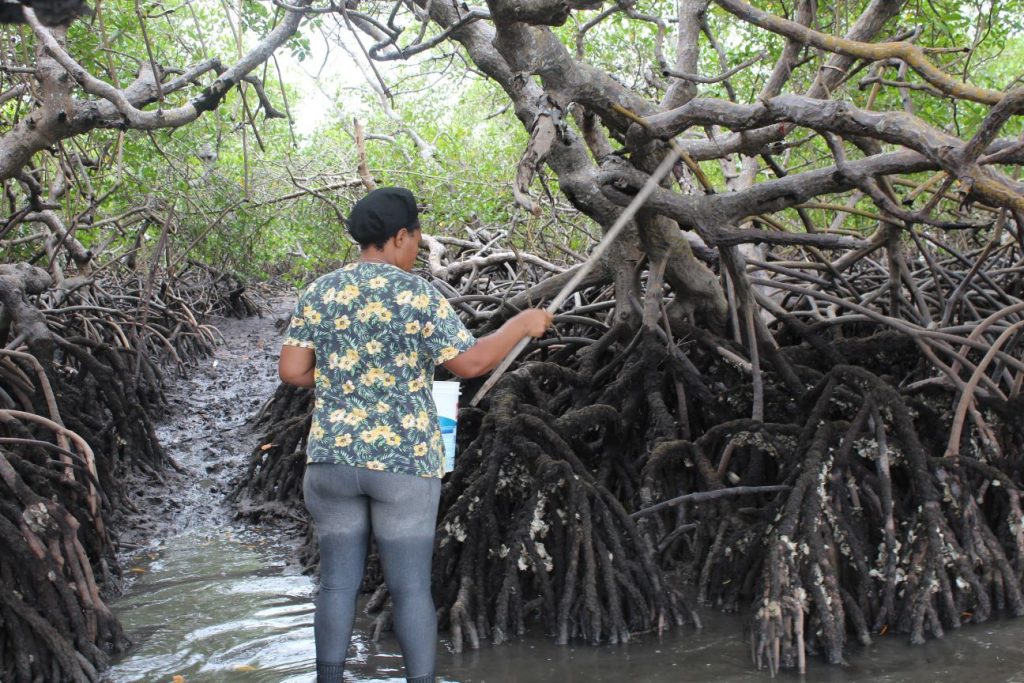
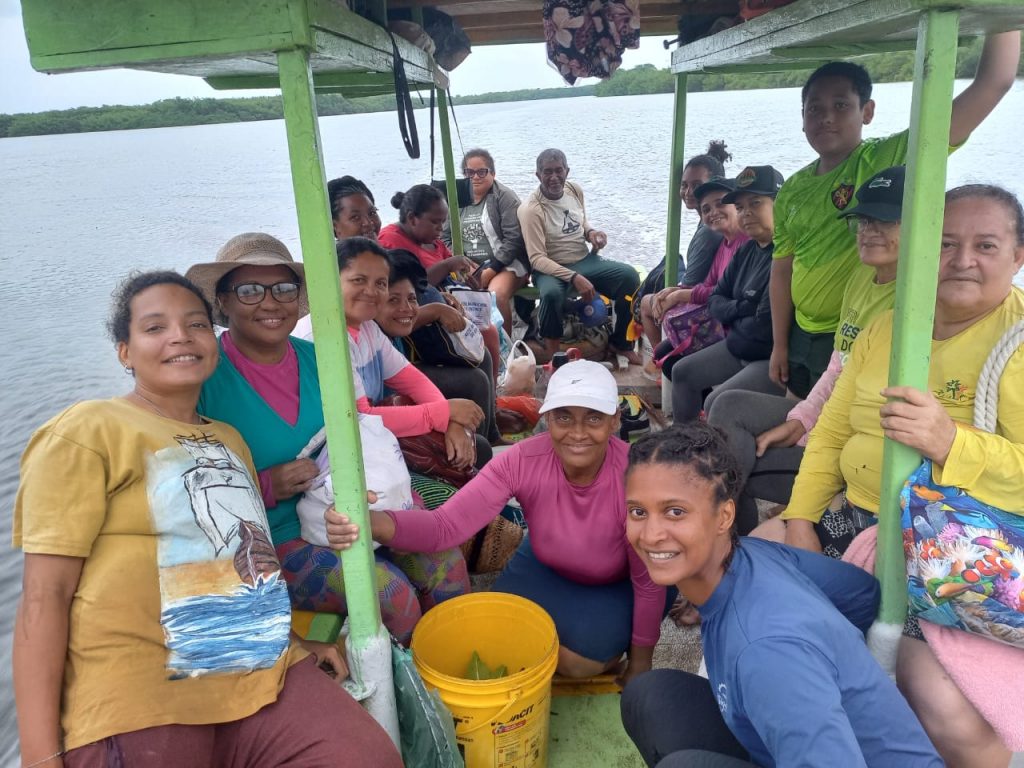
The fisherwomen of Rio Formoso, skilled in various fishing techniques, were photographed capturing shrimp, mussels, oysters, crabs, and fish from the estuary with mastery. Each fisherwoman has a unique style, showcasing tradition and skill in harvesting different types of seafood, preserving a practice that is vital to the region’s economy and culture. It was a moment of exchange,and the opportunity to hear stories that only such encounters allow, revealing the rich local knowledge acquired in every fishing journey.
Editorial
Cristiano Lopes
Editing
Latifa Pelage & Karla Albuquerque



